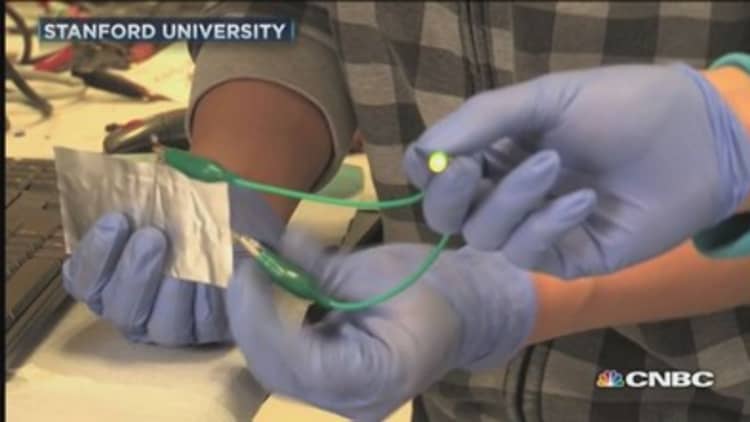
Everyone has experienced the frustration of their phone battery dying and the several hours wait to get back to full charge. This could now be a thing of the past after scientists unveiled a battery that can be charged in one minute.
An aluminum battery developed by Stanford University researchers is an alternative to the current lithium-ion batteries used in smartphones and researchers claim it won't damage the environment or be combustible.
"We have developed a rechargeable aluminum battery that may replace existing storage devices, such as alkaline batteries, which are bad for the environment, and lithium-ion batteries, which occasionally burst into flames," said Hongjie Dai, a professor of chemistry at Stanford in a statement.
"Our new battery won't catch fire, even if you drill through it."
Two key characteristics of the battery is that it is bendable, allowing it to be used in potentially flexible devices, and costs very little to produce.
The researchers said a viable aluminum battery has been the subject of years of research but a key challenge has been finding materials capable of producing sufficient voltage after repeated cycles of charging and discharging.
Read MoreThe table that wirelessly charges your smartphone
Stanford scientists' battery can withstand more than 7,500 charging cycles without any loss of capacity, in comparison to previous attempts at the aluminum battery which died after just 100 charge-discharge cycles.
A typical lithium-ion battery lasts about 1,000 cycles.
Dai also said the aluminum batteries could be used to store renewable energy on the electrical grid given the durability of the device.
"The grid needs a battery with a long cycle life that can rapidly store and release energy," he explained. "Our latest unpublished data suggest that an aluminum battery can be recharged tens of thousands of times. It's hard to imagine building a huge lithium-ion battery for grid storage."
But the researchers admitted that more work needs to be done until the battery will become a viable consumer product. Dai said the aluminum prototype can generate about two volts of electricity, more than the 1.5-volt AA and AAA batteries consumers currently use, but about half the voltage of a typical lithium-ion battery.
"I see this as a new battery in its early days. It's quite exciting," Dai said.





